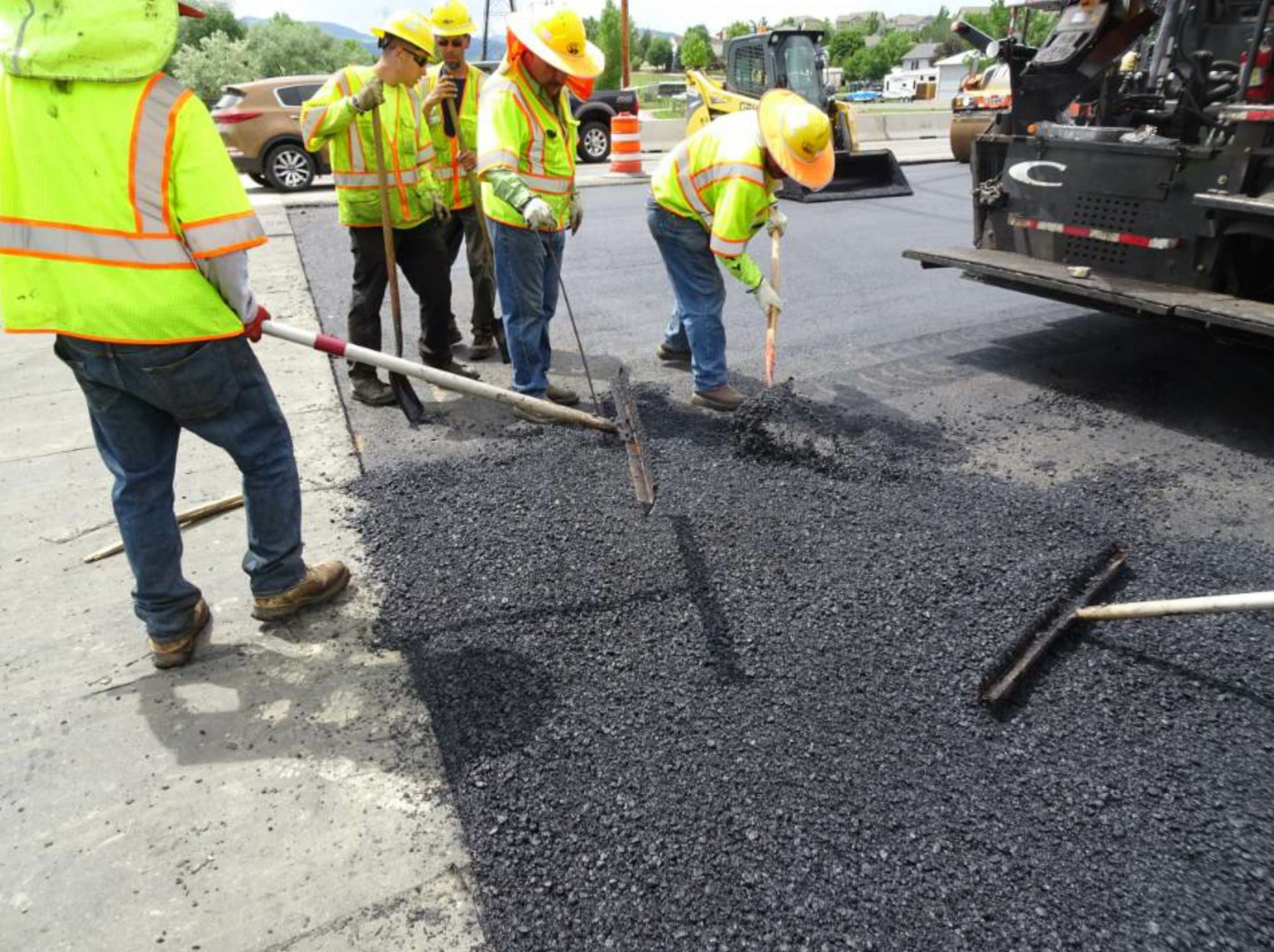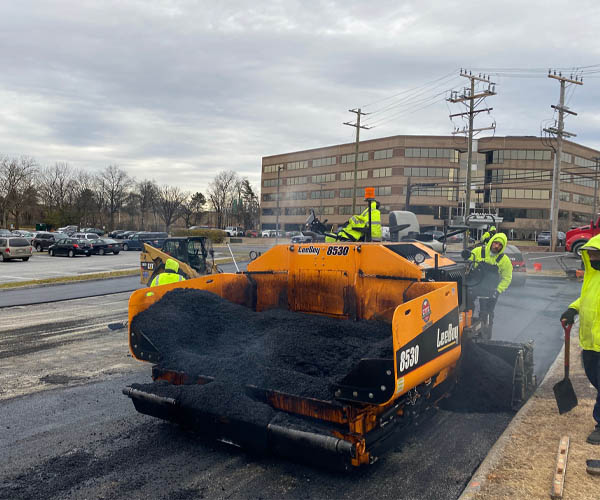Asphalt Paving Acworth GA: Upgrade Your Property with Premium Paving Options
Asphalt Paving Acworth GA: Upgrade Your Property with Premium Paving Options
Blog Article
Understanding the Various Types of Asphalt Paving Available Today
In the world of construction and infrastructure, an extensive understanding of the different kinds of asphalt paving is vital for optimum task outcomes. From the robust Hot Mix Asphalt, developed for high-traffic areas, to the ecologically mindful Porous Asphalt that assists in water monitoring, each kind presents distinct advantages customized to specific needs.

Hot Mix Asphalt
What makes warm mix asphalt a favored choice for roadway building and repair work? Hot mix asphalt (HMA) is preferred for its sturdiness, flexibility, and efficiency under varying conditions.
HMA's capacity to be tailored to details job demands is one more significant benefit. Different ranks and formulas can be utilized to improve buildings such as versatility, resistance to contortion, and durability. Additionally, hot mix asphalt can be quickly mounted and open up to website traffic, reducing disturbance during building and construction.
Environmental factors to consider also play a duty in the preference for HMA. The product is recyclable, and redeemed asphalt sidewalk (RAP) can be reused, advertising sustainability in roadway building and construction practices. In general, hot mix asphalt sticks out as a reliable choice, efficiently giving a long-lasting, high-performance surface area that meets the needs of contemporary facilities.
Cold Mix Asphalt
Cold mix asphalt is a functional alternative to hot mix asphalt, specifically matched for particular applications such as patching and surface area treatments. This kind of asphalt is generated at ambient temperature levels, allowing for much easier handling and application without the demand for comprehensive home heating tools.
Typically composed of asphalt solutions or lessenings, cool mix asphalt can be mixed on-site or purchased pre-mixed. Its buildings allow it to bind well with existing pavement, making it an effective service for fixing splits, fractures, and various other surface area flaws. In addition, it can be used in a variety of weather conditions, offering a useful choice for year-round maintenance.

However, while chilly mix asphalt is ideal for short-lived repairs, it may not offer the exact same long life or longevity as hot mix asphalt under rush hour conditions. It is best made use of for low-traffic locations or as a short-lived service up until more irreversible repair services can be performed.
Cozy Mix Asphalt
While warm mix asphalt has actually long been the standard for road building, cozy mix asphalt (WMA) has actually emerged as an ingenious alternative that stabilizes efficiency with ecological factors to consider. WMA is created at considerably reduced temperature levels-- usually in between 215 ° F and 275 ° F-- contrasted to warm mix asphalt, which is warmed to around 300 ° F. This reduction in temperature level not just lowers energy usage yet also decreases greenhouse gas exhausts throughout manufacturing.
The modern technology behind WMA involves the use of ingredients or methods that allow far better workability at reduced temperatures. These can include chemical ingredients, foaming procedures, or a mix of both. Because of this, WMA preserves the essential see this here properties for longevity and efficiency while offering a more eco-friendly choice.

Permeable Asphalt
Porous asphalt stands for a forward-thinking strategy in sidewalk design, focusing on both performance and environmental sustainability. This cutting-edge material is especially crafted to enable water to permeate via its surface, successfully decreasing overflow and promoting groundwater recharge. Consequently, permeable asphalt is an exceptional selection for areas prone to flooding or where stormwater management is critical.
The structure of porous asphalt varies from traditional asphalt, including a higher percentage of voids that go now help with drain. This home not only minimizes surface area water build-up yet additionally assists mitigate problems like hydroplaning and boosts car traction throughout damp problems. asphalt paving acworth ga. Furthermore, permeable asphalt can add to metropolitan warmth island reduction, as it enables higher dissipation and cooling effects in city atmospheres
In terms of installation, porous asphalt requires careful consideration of underlying drain systems to ensure ideal efficiency. Maintenance normally entails regular assessments and cleaning up to prevent obstructing from particles, which can harm its leaks in the structure. On the whole, permeable asphalt serves as a sustainable paving option that straightens with modern environmental goals, making it a significantly popular choice for both personal and public jobs.
Rubberized Asphalt
Rubberized asphalt is an advanced paving product that integrates recycled rubber, generally sourced from scrap tires, right into the asphalt mix. This innovative strategy not just improves the performance of traditional asphalt but also advertises environmental sustainability by recycling waste products. The addition of rubber boosts the versatility and sturdiness of the sidewalk, making it resistant to splitting and contortion under varying temperature problems.
One of the significant benefits of rubberized asphalt is its ability to decrease environmental pollution. The rubber particles absorb sound, leading to quieter highways, which is specifically advantageous in metropolitan locations. This type of asphalt supplies boosted skid resistance, improving safety and security for vehicles.
Rubberized asphalt additionally adds to prolonging the lifespan of road surface areas, bring about decreased maintenance costs in time. This durability is especially beneficial for high-traffic locations where deterioration are accelerated. Furthermore, its resistance to dampness infiltration aids lessen the risk of water damages, even more enhancing resilience.
Conclusion
In recap, the variety of asphalt paving types-- Hot Mix Asphalt, Cold Mix Asphalt, Warm Mix Asphalt, Porous Asphalt, and Rubberized Asphalt-- each accomplish distinctive features that accommodate varied building and construction and maintenance demands. These alternatives not just boost roadway top quality yet additionally contribute to sustainability with decreased energy usage and enhanced water management. Understanding these distinctions is vital for selecting the proper asphalt type, inevitably making certain reliable and efficient leading remedies in different atmospheres.
From the durable Hot Mix Asphalt, developed for high-traffic locations, to the eco aware Porous Asphalt that promotes water monitoring, each type presents distinctive advantages customized to certain needs.Usually made up of asphalt solutions or lessenings, cool mix asphalt can be combined on-site or purchased pre-mixed.While hot mix asphalt has actually long been the criterion for roadway building, cozy mix asphalt (WMA) has actually emerged as a cutting-edge option that stabilizes performance with environmental factors to pop over here consider.Rubberized asphalt is an innovative paving material that integrates recycled rubber, typically sourced from scrap tires, right into the asphalt mix.In recap, the range of asphalt paving kinds-- Hot Mix Asphalt, Cold Mix Asphalt, Cozy Mix Asphalt, Porous Asphalt, and Rubberized Asphalt-- each accomplish distinct functions that cater to varied building and construction and upkeep demands.
Report this page